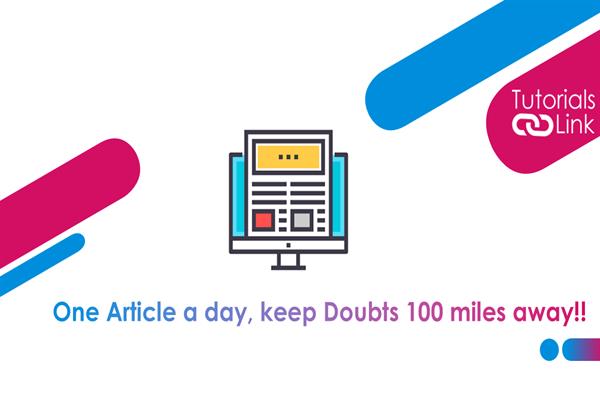College Online Courses A Comprehensive Guide to Unlocking Your Future
In the present quick moving world, conventional training models are advancing. College education is no longer confined to brick-and-mortar classrooms. With the rise of technology, online courses have become a go-to option for students seeking flexibility and convenience. Whether you're a working professional or someone juggling multiple responsibilities, college online courses open doors that were previously shut. But navigating this online learning landscape can be tricky, especially when you need some online course help, to stay on track. If you're too busy to manage it all, you may even wonder if you can [pay someone to do my online class] to lighten the load. Let’s dive into the world of college online courses and explore your options!
What Are College Online Courses?
Online college courses are academic programs offered by universities and colleges over the internet. These courses allow students to access their education from anywhere, at any time. They provide the same rigorous curriculum as traditional in-person classes but come with the added bonus of flexibility. Whether you're studying at midnight or during your lunch break, these courses are designed to fit around your schedule.
Advantages of Taking College Courses Online
The appeal of online courses lies in their unique benefits:
- Self-Paced Learning: You have control over when and how quickly you progress through your coursework. No need to stick to a strict timeline like in traditional classes.
- Access to a Variety of Programs: From undergraduate degrees to specialized certifications, there’s a vast array of online programs catering to different career goals.
- Lower Costs: Tuition for online courses can often be cheaper than in-person classes, and you save on commuting and housing expenses. Plus, financial aid options are still available for eligible students.
How Do College Online Courses Work?
College online courses typically run through virtual learning platforms like Canvas, Blackboard, or Moodle. These platforms offer access to lecture materials, assignments, quizzes, and forums where you can interact with professors and fellow students. Rather than sitting in a physical classroom, you’re attending lectures via pre-recorded videos or live streams. Want some [online class help]? These platforms also support tutors and study aids.
Types of College Online Courses
There are two main types of online college courses:
- Credit Courses: These are part of degree programs and contribute to your diploma.
- Non-Credit Courses: These might be for personal development or professional certification but don’t count toward a degree.
You can also pursue entire online degree programs, such as bachelor’s or master’s degrees, without ever setting foot on campus.
Choosing the Right College for Online Courses
Not all online courses are created equal. It’s important to check for accreditation to ensure the institution meets academic standards. Research the reputation of the college and the variety of programs they offer. Support services such as academic advising, career counseling, and technical assistance can also make a big difference in your success.
Are Online Degrees Respected by Employers?
One of the biggest concerns about online education is whether employers value online degrees as much as traditional ones. The good news? Yes, they do! Most employers are less concerned about how you got your education and more focused on your skills and knowledge. In fact, many companies now recognize the dedication and self-discipline it takes to complete an online degree. There are countless success stories of graduates who thrived in their careers after completing online programs.
Challenges of College Online Courses
While there are many benefits to online courses, there are also challenges. Time management can be tricky when you’re responsible for creating your own schedule. Online courses require an elevated degree of self-inspiration. You have to hold yourself accountable since there are no physical classrooms or face-to-face interactions keeping you on track.
Who Should Consider College Online Courses?
Online college courses are ideal for:
- Working professionals: If you're balancing a job with education, online courses give you the flexibility to do both.
- Parents and caregivers: For those with family responsibilities, online classes provide the opportunity to further education without sacrificing personal commitments.
Online Courses for Specialized Fields
Online education isn't just limited to general studies. Many specialized fields like engineering, medicine, and law offer online components. Fields like graphic design, software development, and digital marketing thrive in online environments due to their tech-driven nature.
Financial Aid and Scholarships for Online Courses
Financial aid is still available for online students, just like traditional students. You can apply for federal loans, grants, and scholarships. Make sure to check eligibility requirements and apply through official platforms like FAFSA.
Online Learning Tools You Need
To succeed in online college courses, you need some basic tech tools:
- A reliable computer or laptop.
- High-speed internet for streaming lectures and completing coursework.
- Software like Zoom, Microsoft Office, and Google Drive will help you stay organized and engaged.
How to Succeed in College Online Courses
Success in online learning is all about staying organized. Set a study routine and create a distraction-free zone for your work. Make use of calendars and task management apps to keep track of deadlines. Remember, just because it’s online doesn’t mean it’s easier. It requires discipline and dedication.
Future of College Online Courses
The future of online education looks bright, with emerging technologies like AI and virtual reality transforming the way we learn. Expect to see more micro-credentials and certifications as companies seek highly specialized skills rather than general degrees.
Conclusion
College online courses offer a world of opportunities for students looking to balance education with other responsibilities. With flexibility, a wide variety of programs, and lower costs, it's no wonder that more and more students are choosing this path. But if you ever find yourself needing a bit of [online class help], there are resources available to ensure you stay on track. Don't hesitate to explore this exciting option for your education!
FAQs
- Can I [pay someone to take my online class] if I’m overwhelmed?
- It’s always best to seek assistance through tutors or academic resources rather than outsourcing your work.
- Are online college courses easier than traditional classes?
- Not necessarily. While they offer flexibility, they also require strong self-discipline and time management skills.
- How do I know if an online course is accredited?
- Always check the institution’s accreditation through official bodies such as the U.S. Department of Education.
- Can I transfer credits from online courses to other institutions?
- Indeed, however it relies upon the arrangements of the organizations in question. Always verify with both schools beforehand.
- What are the best tools to stay organized in an online course?
- Tools like Google Calendar, Trello, and Evernote are excellent for tracking deadlines and managing your tasks.






